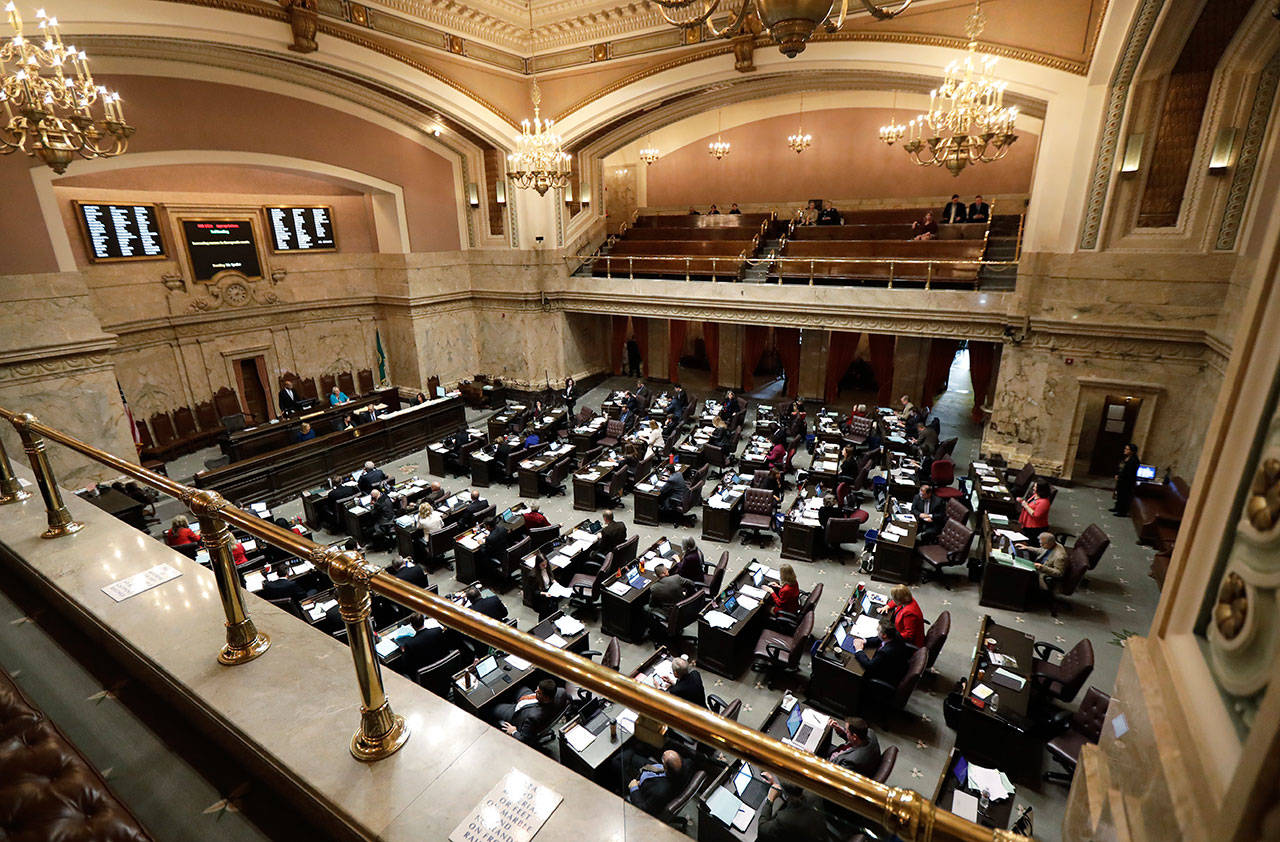By Rachel La Corte
The Associated Press
OLYMPIA — Dozens of races across Washington state will determine if Democrats maintain their control of the Legislature.
All 98 seats in the state House are up for election Nov. 6, and voters will decide 25 of the state Senate’s 49 seats.
While Democrats hold most statewide offices in Washington, the political split in the state Legislature is much narrower: Democrats currently hold a one-seat advantage in the Senate and a two-seat advantage in the House.
“People think of us as a blue state even though we are a deeply divided state,” said Cornell Clayton, director of the Thomas S. Foley Institute for Public Policy at Washington State University.
Seventeen of the races on the ballot are for open seats with no incumbent: 14 in the House and three in the Senate.
A handful of races have seen significant spending by outside groups, including the 30th District, where Democrat Claire Wilson seeks to oust Republican incumbent Sen. Mark Miloscia, and the 26th District, a seat left open by Republican Sen. Jan Angel’s retirement.
August’s primary showed several Republican incumbents and Republican candidates in open seats trailing their Democratic opponents, even in some districts that were previously considered safe GOP districts.
Independent pollster Stuart Elway called August’s primary results “a wakeup call for the Republicans.”
Republican Sen. Ann Rivers, who is involved with her chamber’s campaign efforts, said Republicans are “waxing up our red surfboard in case there is a blue wave.”
“The biggest challenge is the separating of what’s happening in Washington, D.C. from Washington state,” she said. “But I think this year there are a lot of things that are happening that are motivating both sides.”
In the Senate, Republicans are trying to hold on to three Republican-held districts where the Democratic aggregate vote in the primary was higher than the Republican vote: Miloscia’s seat, Republican. Sen. Doug Ericksen’s district and the open seat in the 26th, where Democrat Emily Randall and Republican Marty McClendon are vying to replace Angel.
“I think this is just likely to be a year where we are going to benefit significantly from people’s desire to send a message about how frustrated they are,” said Democratic Sen. Jamie Pedersen, who is chairman of the Washington Senate Democratic Campaign.
Republican Rep. J.T. Wilcox, who has been involved in fundraising for Republicans running in the House, where more than a dozen seats are in play, said there’s no question that he’s worried because “the national wind is blowing in our face.”
“I’d be foolish and dishonest if I didn’t say this is a year where we’ve got more obstacles,” he said.
He emphasized that Washington voters are known to not vote a straight party line ticket, and he said he trusts voters will continue to vote for person over party.
“I think that people understand that there’s a difference between the people talking on national news and the people they know in their neighborhood,” he said.
Democratic Rep. Joe Fitzgibbon, heading up his caucus’ campaign efforts, said with three competitive congressional races that overlap with several legislative districts there’s “even more voter enthusiasm for showing up and casting their ballots.”
Pedersen agrees with Fitzgibbon that the attention on the congressional races will have an impact on turnout, and could be a factor in races like the 47th, which overlaps with the 8th Congressional District race between Republican Dino Rossi and Democrat Kim Schrier and where incumbent Republican state Sen. Joe Fain is seeking re-election to his third term under the cloud of a sexual assault accusation. Last month, a woman said Fain raped her in Washington, D.C., in 2007. He has denied the accusation and has called for an investigation.
Two other lawmakers seeking re-election this year also have had to address sexual misconduct charges. Democratic Rep. David Sawyer lost his August primary less than two months after an outside investigation found that he violated the chamber’s policies on harassment, decorum and ethics. Among the findings in the investigation were that Sawyer sent a House employee “inappropriate and offensive” text messages over a period of three months.
Last month, Republican leaders in the House called for Rep. Matt Manweller to resign after the Northwest News Network reported that a former Idaho high school student of Manweller’s said she had a sexual relationship with him in the 1990s, when she was 17. Manweller, who was fired from his professor position at Central Washington University in August following an outside investigation into alleged inappropriate conduct, has denied the allegations but has said he will finish his term but not serve another if re-elected next month.
